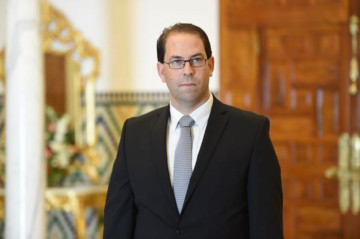
The recent evacuation of rebel fighters and their families from the Syrian town of Daraya, some eight kilometres from Damascus, after a four-year siege, is euphemism for ethnic cleansing, said the Jordan Times.
“The exodus, a few weeks ago, of residents of the east part of Aleppo trying to escape the war and bloodshed may have marked the beginning of a process of mass movement. When superpowers take charge of a conflict without the direct involvement of the immediate parties to that conflict, the risk is that their decisions are not enduring or just. The ideal situation would be to have Damascus agree to negotiate directly with the opposition, the moderate groups, of course, who only called for democracy, rule of law and respect for human rights. But the Syrian regime has been obstinate from the very beginning and it cannot be expected to change position now when it thinks military victory is possible for it.”
All regional players — Turkey, Iran, Russians, the Syrian regime and opposition-have not objected to strengthening the Kurds in Syria as long as their chief target is only Daesh, said the London-based Pan-Arab newspaper Asharq Al Awsat.
“But Kurdish forces have gone beyond plan, taking over cities and swathes of Syrian and Iraqi land. One cannot overlook the serious threats entailed by the Syrian civil war and posed against all neighbouring countries. Sharing the longest borderline with the war-torn country, Turkey is the country chiefly affected by the crisis as ongoing clashes stretch across it borders. As for Jordan, despite implementing full border control, over a million Syrian refugees have crossed over. More so following clashes renewed in nearby bordering Daraa governorate. As for Syrian President Bashar Al Assad, a Kurdish expansion might be a Trojan horse, doing the United States-led international coalition’s bidding in ousting him and pushing forward with the plot for Syria’s transformation.”
The formation of the new Tunisian unity government is like a response to various questions that spurred debates among the Tunisian elites, said the London-based Pan-Arab paper Al Quds Al Arabi. “The appointment of a young Tunisian Prime Minister [Yousuf Shahed] serves as a response to discussions that emerged regarding the ageing Tunisian President Beji Qaid Al Sebsi, who received a high share of votes from the elderly. The wide-range of representation from different parties is also a response to accusations regarding the presence of just two major parties: Nidaa Tunis and Al Nahda. Yet, the formation of the new government was followed by the death of three soldiers in a terrorist attack, reminding Tunisians about the threat of terrorism and its strong link to corruption ... Most important for Tunisians and Arabs is the fact that Tunisia has kept moving forward with its democratic approach.”
The new Tunisian government is the eighth one following the revolution and includes members with different ideologies and parties such as those representing the left-wing, right-wing, technocrats, independents and moderates, said the UAE’s Al Khaleej. “All previous governments failed in their mission to rescue Tunisia from heavy crises that had accumulated, following the revolution, due to poor management by the previous regime.”




_resources1_16a31069e4e_small.jpg)







